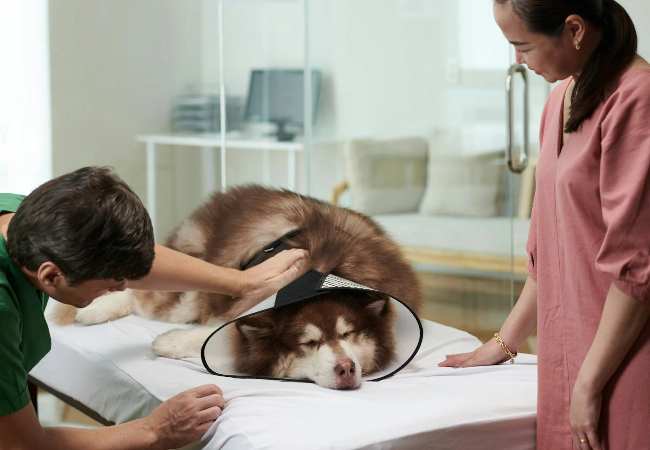Dog Motion Sickness in 2025: Vet-Backed Guide 🚗🐶

In this article
Dog Motion Sickness in 2025: Vet-Backed Guide 🚗🐶
By Dr. Duncan Houston BVSc
📌 What Is Motion Sickness in Dogs?
Motion sickness—often called carsickness—is when a dog feels nauseous or dizzy during travel in cars, boats, or planes. It comes from conflicting signals in the inner ear and brain, causing imbalance and vomiting.
👀 Common Signs to Watch For
- Whining, pacing, drooling, lip-licking
- Lethargy, yawning, begging for breaks
- Vomiting, diarrhea
- Panting, shaking, restlessness
🧠 What Causes It?
- Underdeveloped inner ear in puppies (<1 year)
- Negative associations—fear of cars or vet visits
- Underlying ear or vestibular issues
🩺 Diagnosis & Vet Involvement
Your veterinarian will rule out ear infections or vestibular disease, and may suggest testing or prescribe motion-specific medications.
💊 Treatment & Medication Options
- Maropitant (Cerenia): FDA-approved anti-nausea; works within 2 hrs, lasts 24 hrs
- Antihistamines: Diphenhydramine or dimenhydrinate can help with nausea & drooling
- Phenothiazines or acepromazine: sedative plus antiemetic for anxiety-triggered nausea
- Anti-anxiety meds: e.g., trazodone or alprazolam for stress-based motion sickness
🛣️ Behavior & Training Strategies
- Start with short trips—engine on, driveway loops—reward with treats
- Gradually increase travel time and positive experiences
- Use calming products: pheromone sprays, compression vests
- Limit food intake 8–12 hrs before travel; offer small sips of water
- Position the dog forward-facing in the car, allowing fresh air via cracked windows
🛡️ Preventive & Comfort Measures
- An empty stomach helps reduce nausea
- Comfort items—blankets, toys, familiar scents
- Use a crate or seatbelt harness to limit the view movement
- Maintain a cool car temperature, and crack windows for airflow
📈 Prognosis & Outlook
Puppies often outgrow mild motion sickness by 1 year. For others, training, environment modification, and medications help most dogs travel comfortably and stress-free.
📞 When to Contact Your Vet
- Persistent vomiting, lethargy, or refusal to eat ⚠️
- Signs of anxiety or vestibular disturbance are not limited to travel
- Need prescription medications like Cerenia or anti-anxiety drugs
For real-time support or doubts, use the Ask A Vet app 📱—expert advice anytime, anywhere.






